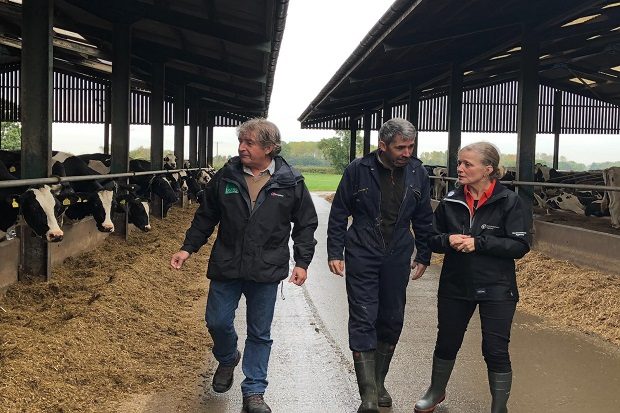
Environment Agency chair Emma Howard Boyd and Natural England chair Tony Juniper have visited South Acre Farm in York today, to see how, with the help of Catchment Sensitive Farming (CSF) advisers, farmers have been able to improve water quality.
A new report published today has shown that nearly 20,000 farmers have received advice from their local CSF officer, with eight in 10 farmers seeing an improvement in water quality on their land or other financial benefits, such as lower fertiliser costs.
For the last 12 years, the network of CSF officers have helped farmers across the country carry out more than 75,000 actions to reduce water pollution on their land, including changing the way they apply pesticides and building new infrastructure. This has led to reductions in several agricultural pollutants, with nitrogen levels down by 4%, phosphorus levels down by 8% and a 12.3% reduction in sediment.
On a tour of the farm led by owners Paul and Rachael Tompkins, Emma Howard Boyd and Tony Juniper saw the new concrete yard and roofing for the farm’s slurry separation system, which has helped reduce the amount of slurry reaching the water on their land.
Environment Agency chair Emma Howard Boyd said:
The public are rightly appalled by water pollution incidents. Protecting our rivers, lakes and streams is a top priority for the Environment Agency.
It does not come as a surprise that farmers working to enhance and restore river catchments have also reported financial and reputational benefits.
Natural England chair Tony Juniper said:
If we are to conserve and improve the many beautiful rivers that are so iconic of England’s wonderful landscapes, then farmers must play essential roles in making it happen.
Agriculture remains one of the main sources of poor water quality and that’s why it is so important that we see positive change toward better farming practices.
The progress being made through the Catchment Sensitive Farming programme reveals how tangible improvements to the quality of our waterways can be achieved, bringing wider benefits to farmers, local communities and the wider public.
1 comment
Comment by William Hughes-Games posted on
For the improvement of water quality in the vicinity of farms, it is hard to go past the work described in 'Growing a Revolution', by Montomery.
https://mtkass.blogspot.com/2017/08/restoring-our-soils.html